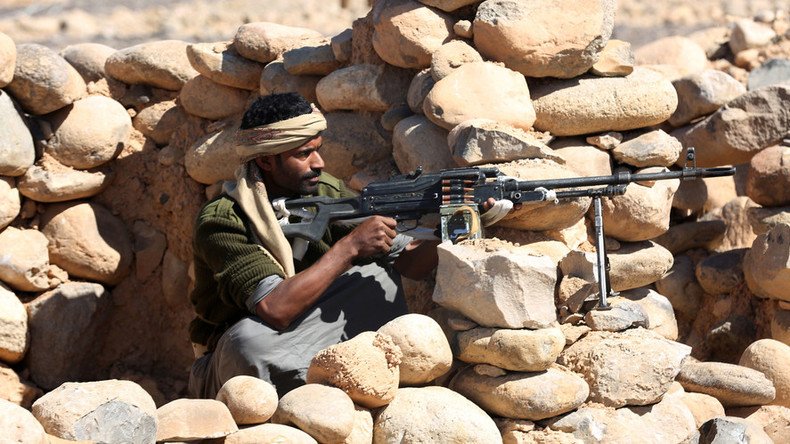UK violating Arms Trade Treaty – ‘appalling’

By selling arms to Saudi Arabia, which has repeatedly bombed civilian targets in Yemen, the UK is violating the Arms Trade Treaty – a law it lobbied and pushed for at an international level, says Sally Copley, Head of Global Policy and Campaigns, Oxfam.
The international charity Oxfam has accused the UK government of violating the 'International Arms Trade Treaty' as London continues its arms deals with Saudi Arabia.Oxfam's statement comes as Saudi-led airstrikes intensify in Yemen hitting civilian areas and killing dozens of people, including children.
The UK government responded that its arms deals with Saudi Arabia are legal, and are reviewed carefully.
RT: Oxfam has accused the UK government of being “one of the most significant violators” of the Arms Trade Treaty. Isn’t this a bit harsh considering all the other wars taking place in the world today?
SC: No, I don’t think it is harsh at all. What you’ve got to bear in mind is that the Arms Trade Treaty is something the UK government really fought for: it worked hard, it lobbied, it expended an awful lot of political capital, and it did that over a period of years – about ten years – to get the Arms Trade Treaty into law. It is not just international law, it is also British law. So actually this is a really important debate to be having, and in fact it is something really important to resolve. What is happening is the UK government isn’t adhering to the law that we pushed for and make sure it happens on an international level.
Yep. Literally no spokespeople for the Govt on this today. Not. One. #Yemen@oxfamgbhttps://t.co/tHrZz2dHwd
— Sally Copley (@SallyCopley) 23 августа 2016 г.
And there are real life consequences to that in Yemen: six children are either dying, or being injured on a daily basis; about three quarters of the population are in urgent need of humanitarian assistance; and half the population is suffering from malnutrition and hunger. It is a real life impasse with this.
It is worth remembering that David Cameron, when he was prime minister three years ago described this piece of legislation as ground breaking and something that we should be really proud of. So the very idea that the UK government – less than two years into the international law being actually set – the very idea that we’re not adhering into it is appalling.
RT: The UK has been selling arms to Saudi Arabia for a number of years. What’s changed now?
SC: There is a chronology of the events in recent history that sets out very clearly why this is the wrong thing to be doing; why it is illegal; why it is immoral; why it is incoherent. Just to give you that background – the international law states very clearly that where weapons could be used either systematically, or in widespread instances against civilians and the population, or to target civilians and the population, regardless of whether or not a state is in a war, if weapons could be used for those purposes - then we must not sell them. It is really simple, it is straightforward.
What has happened within the last year or so is that again and again the UK government has said either it has done the assessment, the Saudis have proved that they aren’t bombing civilians, or they are not hitting residential compounds; or they have very recently said that what’s happened is they haven’t done those assessments at all. Then even just two weeks ago the Saudis themselves said that there have been two violations of international humanitarian law.
So just to spell that out, to begin with we’ve said we wouldn’t sell if they wouldn’t be adhering to humanitarian law. Then we said we’d assessed and they were adhering. They we said: “Actually we haven’t assessed, we don’t know whether they’re adhering.” And then the fourth day the Saudi said: “Look, we’ve had two instances of violations.” These are really serious incidents to be happening. And it is not what just the Saudis have just said themselves, or just international law, it is the fact that this is independently verified by Human Rights Watch, Amnesty International, and the UN itself have all said: “These weapons are being used against civilians in Yemen.”
RT: Do you accept that violations – the civilian casualties or indeed civilian deaths – are just an inevitability of airstrikes?
SC: The laws of war are clear – that you do not target civilians. The fact is that in the last 10-11 days we’ve seen instances where hospitals have been bombed and many schools have been bombed. Those are not military targets. In fact you can go further and say: “There aren’t any targets left in Yemen.” All the infrastructure is being bombed. There is nowhere left to be targeting in this way. So this is totally beyond anything that is within the realms of what you would expect to happen in war.
The statements, views and opinions expressed in this column are solely those of the author and do not necessarily represent those of RT.












